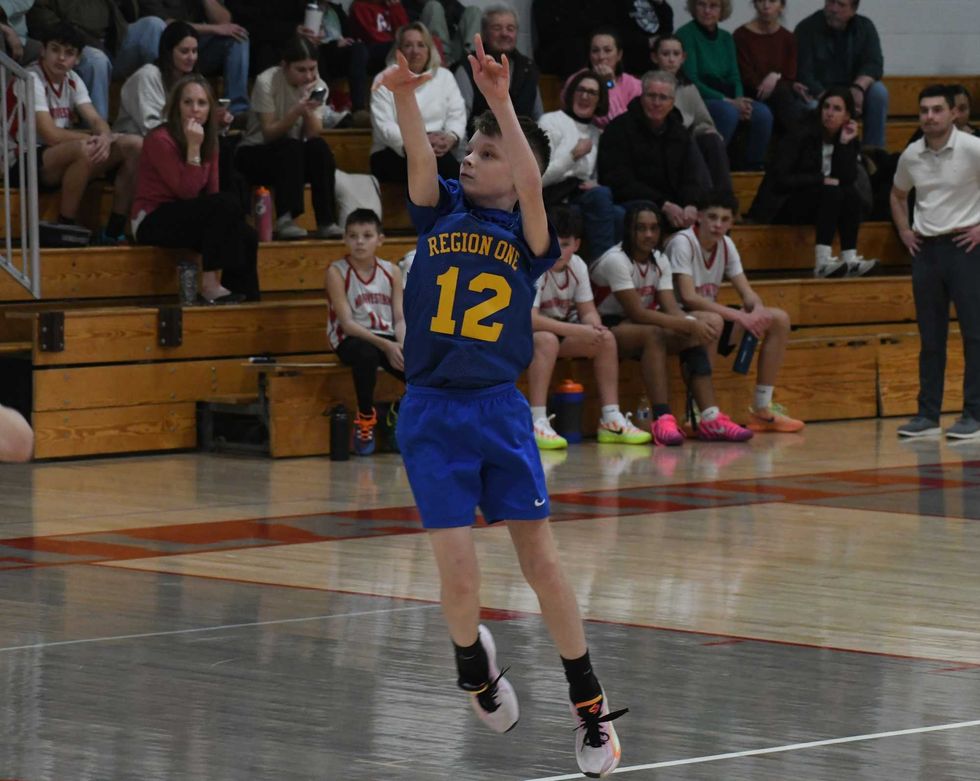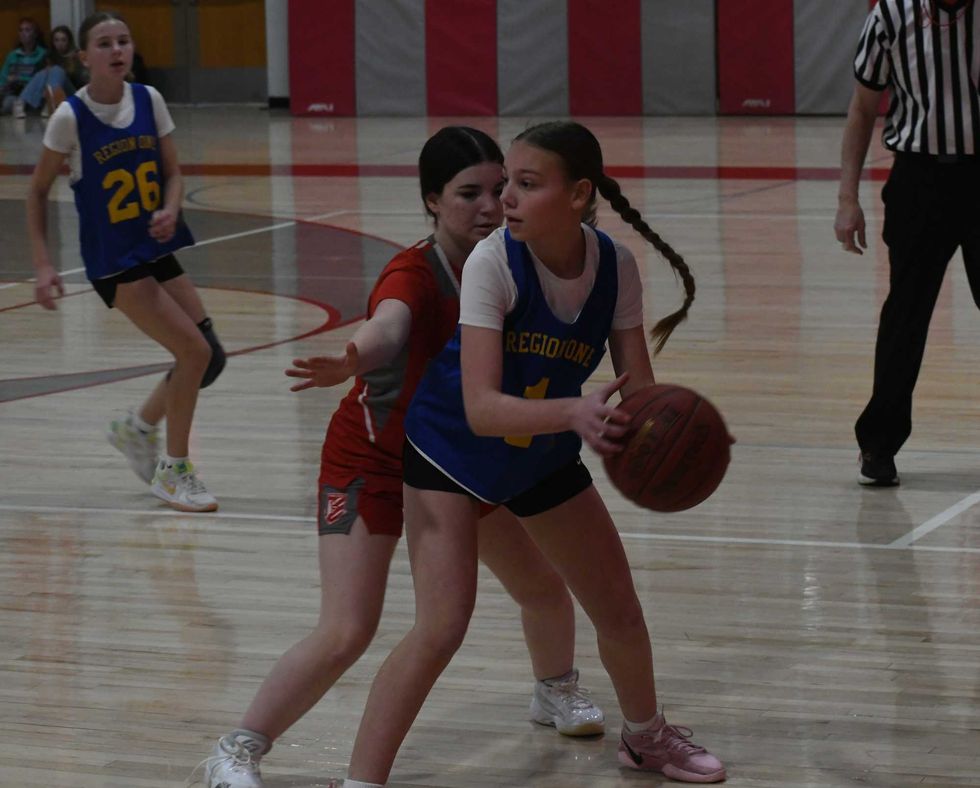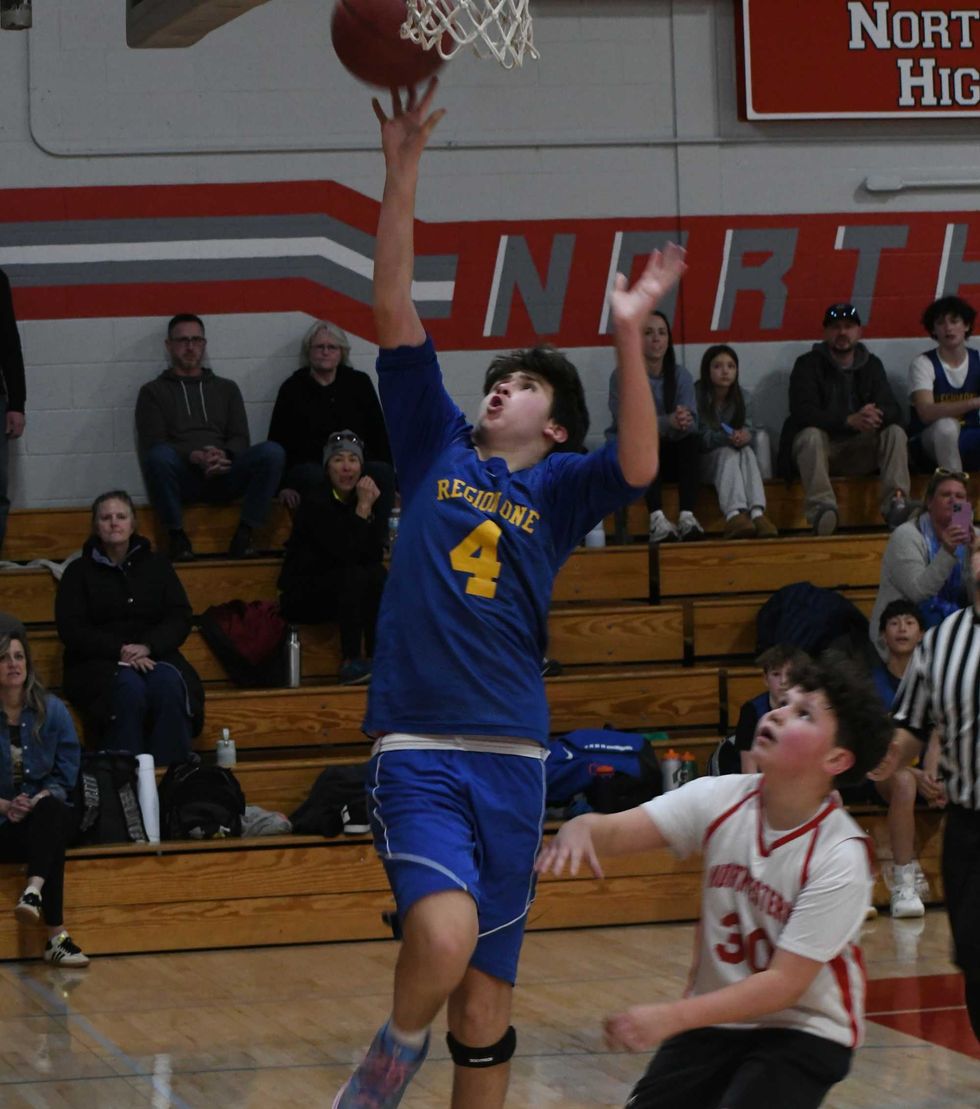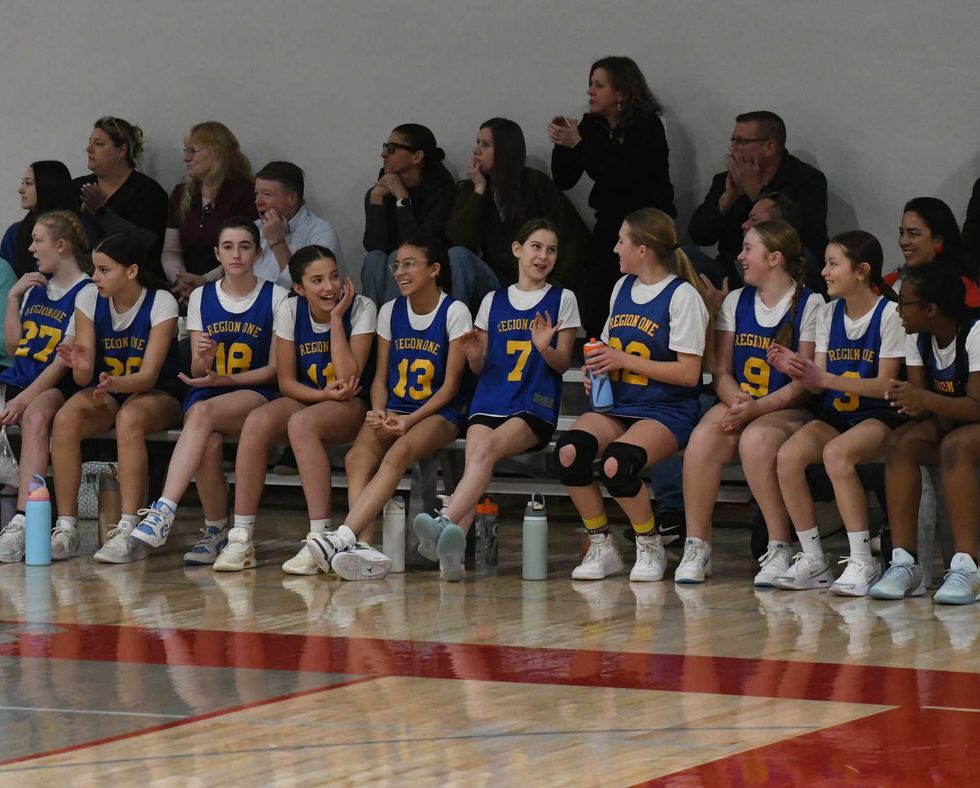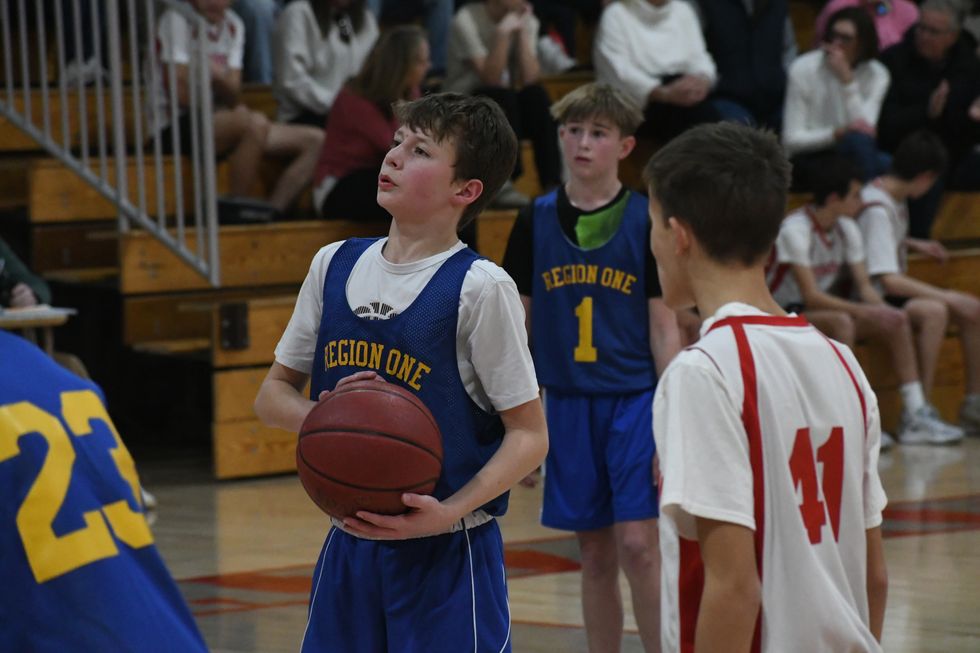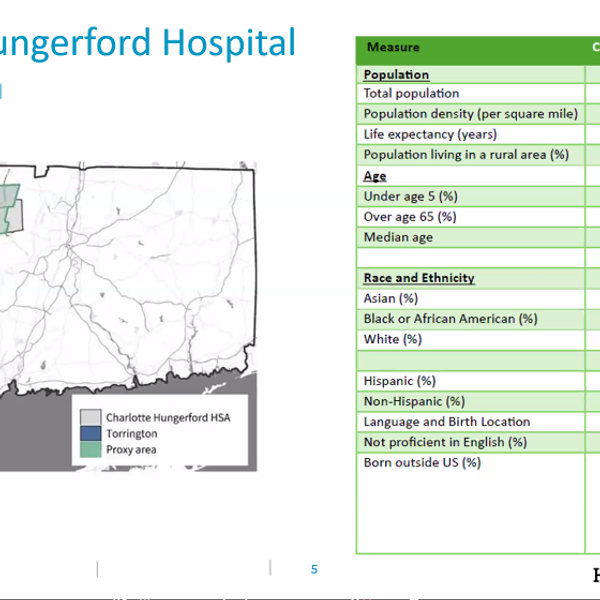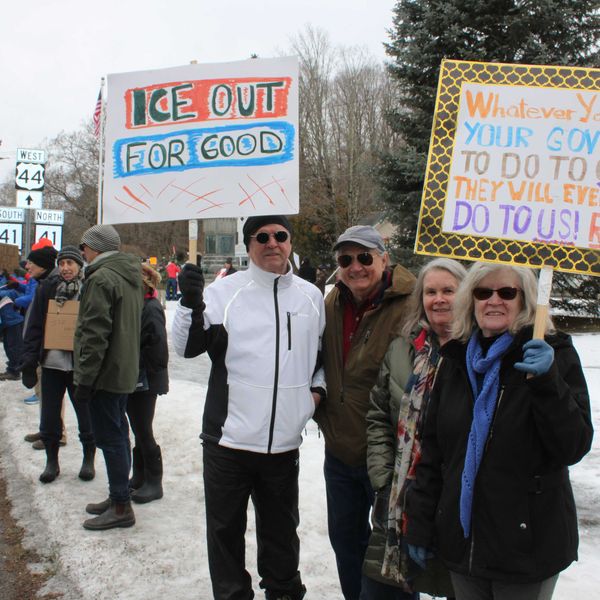Latest News
Indian Mountain School is located in Lakeville.
Logo
LAKEVILLE — Indian Mountain School cancelled classes on Tuesday, Jan. 20 due to an uptick in seasonal illness, according to a Monday evening announcement by Kyle Halloran, Assistant Head of School for Student Life.
According to the email, the decision was made to give students and faculty alike time to recover and rest. Halloran noted that the spike appears to be on trend with general virus rates in the state.
During a follow up call with The Lakeville Journal on Tuesday morning, Halloran said that the infections appeared to stem from a number of seasonal illnesses rather than one specific culprit, such as the flu.
He confirmed that classes are planned to resume Wednesday morning, Jan. 21.
Keep ReadingShow less
The Region One boys basketball team huddles up during a break in the game against Northwestern Thursday, Jan. 15.
Photo by Riley Klein
Middle school basketball players battled on the courts of Northwestern Regional High School in Winsted Thursday, Jan. 15. Region One’s boys and girls teams took on Region Seven in side-by-side games. Region One’s team includes players from Cornwall, Falls Village, North Canaan, Salisbury and Sharon. Region Seven includes Barkhamsted, Colebrook, New Hartford and Norfolk.
The boys game was won by Region One 62-41. The girls game was won by Northwestern 27-14.
Athletes in both games played with intensity and passion.
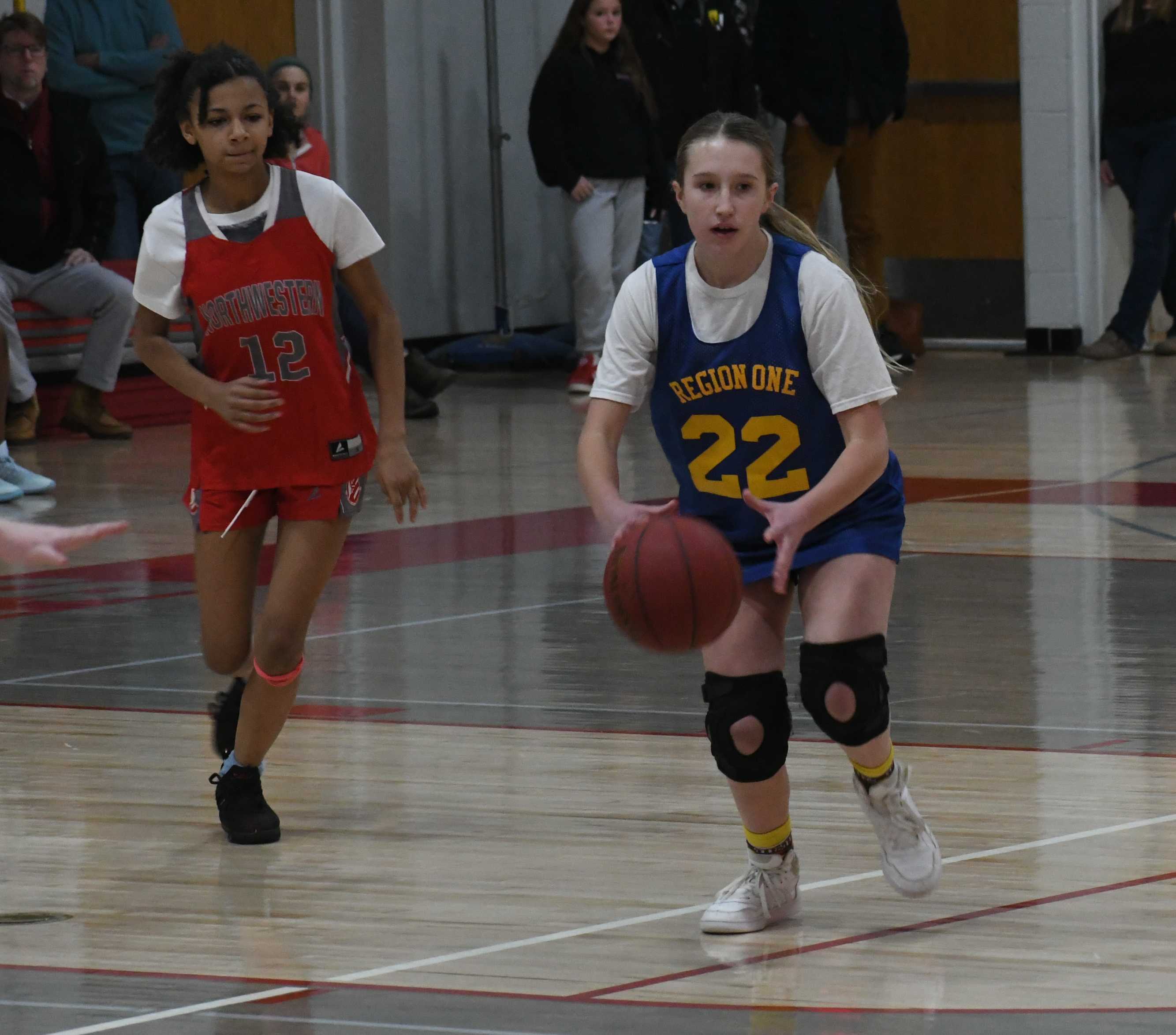
Keep ReadingShow less
Canon Petero Sabune addresses the congregation at St. John’s Episcopal Church Sunday, Jan. 18.
Photo by Patrick l. Sullivan
SALISBURY — St. John’s Episcopal Church marked the Martin Luther King Jr. holiday weekend by welcoming Canon Petero Sabune for a special service on Sunday, Jan. 18, followed by a visit to Salisbury School the next day.
King’s legacy and faith were central themes throughout the service. The first reading featured an excerpt from King’s final book, “Where Do We Go From Here: Chaos or Community?” including the oft-quoted passage: "Returning violence for violence multiples violence, adding deeper darkness to a night already devoid of stars. Darkness cannot drive out darkness: only light can do that. Hate cannot drive out hate: only love can do that.”
In his sermon, Sabune said that many accounts of King’s life and influence often “forget about his faith and convictions.”
“He was a baptized disciple of Jesus Christ,” Sabune said.
After the service, Sabune was asked about ongoing protests and controversy in Minneapolis. He noted that King’s philosophy of nonviolent resistance was shaped by Mahatma Gandhi, who in turn drew inspiration from the writings of Henry David Thoreau.
Sabune said civil rights workers and protestors in the 1950s and 1960s underwent formal training in nonviolence. “They taught people how to get hit and not respond, what [civil rights figure and congressman] John Lewis called ‘good trouble,’” he said.
Reflecting on more recent events, Sabune said that when considering the circumstances that led to the death of Renee Good at the hands of Immigration and Customs Enforcement agent Jonathan Ross, “I feel the pain, not just for Renee, but for Officer Ross.”
Music also played a prominent role in the service. The hymns were drawn from “Lift Every Voice and Sing II: An African-American Hymnal.” Among them was “Precious Lord,” which King requested be sung the night before his death.
“Sing ‘Precious Lord’ and sing it pretty,” King told a follower.
Sabune’s visit to Salisbury followed a long journey that began with a bus ride from Tucson, Arizona, to Phoenix on Saturday, Jan. 17, followed by an overnight flight. The Rev. Johan Johnson, priest-in-charge at St. John’s and chaplain at Salisbury School, picked him up at 7 a.m. Sunday.
The two men have known each other for so long they cannot recall exactly where or when they first met. During an interview, Sabune paused to greet Johnson’s youngest daughter, whom he baptized.
As he headed toward the reception, where parishioners were waiting to greet him, Sabune was asked one final question:
“You going to get a nap in today?”
“Yes!” he said emphatically over his shoulder as he hurried up the aisle.
Keep ReadingShow less
By Riley Klein
CORNWALL — A public hearing was held Tuesday, Jan. 13, to consider the creation of the West Cornwall General Business (WCBG) district.
The proposed zoning text amendment was submitted to the Planning and Zoning Commission in response to longstanding difficulties faced by West Cornwall business owners seeking to modify nonconforming buildings that do not meet current zoning requirements.
The amendment would establish the WCBG district as a separate zone, distinct from the existing business district in Cornwall Bridge. Within the new district, applicants are seeking to reduce the minimum lot size from one acre to 10,000 square feet, narrow the minimum lot width from 100 feet to 50 feet, and eliminate minimum front, side and rear setback requirements.
Most buildings in the area predate modern zoning regulations and were constructed directly on property lines, planning consultant Martin Connor told the commission on behalf of the applicants, West Cornwall Development Group LLC.
As a result of their nonconforming status, Connor said, many property owners have been unable to make even modest improvements. He cited the Pink House as an example, noting that its owners currently store buckets and mops outdoors because they are not permitted to construct a small exterior storage closet behind the building.
Public comment was mixed, with residents voicing both concern and support. Some speakers raised questions about safety and the potential impacts of the proposed changes, while others said the amendment would help bring long-standing nonconforming properties into compliance and create a more business-friendly environment. One resident asked the commission to allow additional time to review the application.
First Selectman Gordon Ridgway spoke in favor of the proposal, saying the current zoning framework “makes it very hard for any business to expand.” He added, “Having large amounts of property being zoned as nonconforming is bad planning, especially as we have for years tried to revive our business centers.”
After closing the public hearing, the commission discussed the proposal during its regular meeting and considered modifications before voting.
Commissioners focused their discussion on the proposed setback distances, citing fire safety concerns tied to the village’s historic character and the age of many buildings.
“Most of these buildings are old. They’re not built with fire blocking,” said Christine Gray, a commission member.
James LaPorta, also a commission member, raised similar concerns about safety and setbacks. “To have a zero side setback, I think, is asking for trouble in the long run. I think five [feet] would be fine.”
Commissioners said eliminating side setbacks entirely could create long-term safety risks and discussed whether a modest buffer would better balance flexibility for property owners with public safety considerations.
Commissioners also emphasized that any future applications within the district would still require review and approval by the Planning and Zoning Commission, as well as other relevant boards, including the Inland Wetlands & Watercourses Agency, the fire marshal and the Torrington Area Health District.
Chair Anna Timell moved to approve the application with a modification setting the side and rear setbacks at five feet, while reducing the front setback to zero feet. She cited the town’s Plan of Conservation and Development, which calls for reviewing and revising zoning regulations in business zones.
The motion passed unanimously.
Moving company
Commissioners also approved a site plan application for Karls on Wheels, a moving company proposing to locate at 26 Kent Road.
The plan includes no change to the footprint and no change in use, and does not permit self-storage on the site.
The application was approved unanimously.
Keep ReadingShow less
loading



